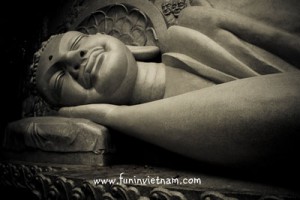 Vietnamese are essentially polytheistic in their religious beliefs. Mahayana Buddhism is practiced widely throughout the country, and Theravada Buddhism may also be found in isolated pockets.
Vietnamese are essentially polytheistic in their religious beliefs. Mahayana Buddhism is practiced widely throughout the country, and Theravada Buddhism may also be found in isolated pockets.
Underlying and co-existing with the Buddhist religion are the deeply ingrained practices of ancestor worship and animism and the moral and philosophical principles of Confucianism, both of which continue to dictate everyday personal conduct.
There is a sizable Catholic population, concentrated mainly in the south of the country but with isolated communities in other regions such as Ninh Binh, 130 kilometers south of Hanoi. Both Islam and Hinduism are practiced by the Cham communities of the central coastal plain and the Mekong Delta and by Indian communities in Ho Chi Minh City.
The relatively new indigenous religions of Cao Dai Chieu Minh and Hoa Hao are also firmly rooted in southern Vietnam. Most of the ethnic minority communities practice a combination of animism and ancestor worship, but some of the Central Highland groups (Xtiêng, Ba-na, Ê-đê, Cơ-ho) and one or two H’mong and Dao communities in the north west hold Christian beliefs.
Freedom of religion is guaranteed by Vietnam’s constitution. In 2004 the government introduced a new State Ordinance on Beliefs & Religions which sets out procedures for the registration of religious organizations, activities & festivals.